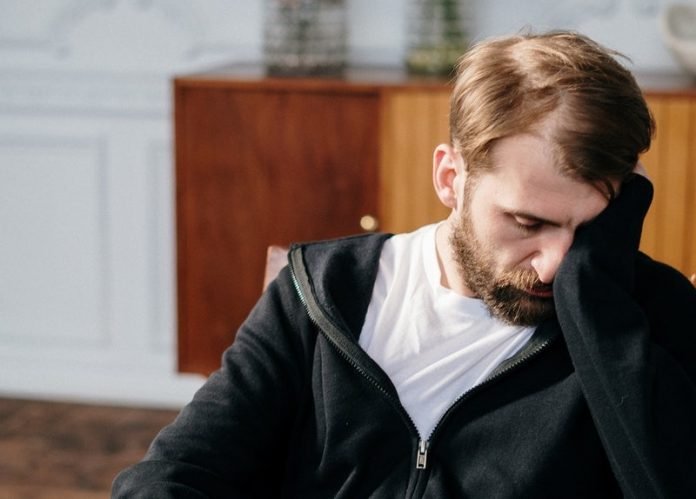
News stories. Social media “memories.” Significant dates of things that happened a year ago – or never happened because of COVID-19.
In the coming weeks and months, it’s going to be hard to escape COVID-related anniversaries, from the serious (this would have been Dad’s 75th birthday) to the mild (remember that time you couldn’t get toilet paper at any store?).
As the vaccine becomes more plentiful, Spring weather appears and economic relief arrives, it’s time to feel hopeful – while still wearing masks in public and avoiding crowds, because the virus hasn’t finished spreading yet.
But you should think about how to avoid, or cope with, the intense feelings that may come back remembering “one year ago” throughout the coming months.
“It’s going to flood back, and some people are not really ready for it,” says Michelle Riba, M.D., a psychiatrist and professor at Michigan Medicine, the University of Michigan’s academic medical center and a member of the U-M Depression Center.
“People have been saying ‘we’re in this together’ throughout the pandemic, and now it’s important to understand people’s individual needs, and recognize that many people are still grieving or are not yet ready to move on from what they experienced,” she says.
“We’re going to need to be patient, with ourselves and others, as we process what we’ve all been through. People move through grieving at different paces, and some may need individualized help.”
Even if you think you’re done with COVID-19’s effects on your life, you may find yourself reacting in unexpected ways to large or small anniversary memories.
Here, Riba and other mental health experts at Michigan Medicine share strategies on how to cope during this time.
Strategies for coping with the one year COVID anniversary:
- Turn off (or limit) the “On this day” and “memories” features on social media and photo-sharing platforms you’re on.
These automatic features are often great sources of fun memories, but for the next few months they may bring back more pain than solace. - If you’ve been working from home and putting in extra hours, dial it back.
Filling the days with work when you don’t have to commute or drop kids at school and/or activities, and not being able to take vacation trips, meant many people who have the ability to work from home have had a hard time turning their “work brain” off for an entire year.
But it’s important to take breaks and recharge – even if it’s through a ‘staycation’ in your area to visit parks, museums, shops and attractions that you’ve stayed away from.
- If you’re fully vaccinated and getting together with others in safe ways, think twice before posting on social media, or stick to text posts rather than photos.
Many people still aren’t eligible to get vaccinated, or can’t find a vaccine appointment even if they want one, or lost a loved one who got infected at a gathering.
Seeing others having fun with relatives and friends on the anniversary of “lockdown” could impact them in unexpected ways.
And some people are afraid of getting vaccinated – from needle phobias, for example. If you’re one of them, ask for help from those who have gone before you.
- If you have friends or relatives who are reluctant to go out to events and restaurants even if they’re fully vaccinated, don’t push them.
Let them re-engage on their own schedule, or stick to activities outside and with masks like you’ve been doing. But keep in touch with them and keep asking.
Having avoided people and indoor group activities for so long may have created a tendency to feel anxious around others, and they need to ease back in slowly.
But it’s important for them not to stay withdrawn because loneliness and isolation can make mental health worse, Riba notes.
- Recognize that not everyone reacts to trauma and memories of traumatic events the same way.
Riba notes that research on depression and related disorders has shown a strong role of past trauma in contributing to a person’s risk – but also that there are many people who show resilience and don’t develop depression even in the face of serious trauma.
Since we don’t know yet what factors make someone more or less prone to depression after this type of trauma, the best thing to do is to help people who show signs of depression get help, through counseling and medication if necessary.
The Depression Center offers a free online toolkit to help you screen yourself or know how to help someone else. You can also speak to your primary care doctor or nurse practitioner.
- If you suffered a major loss in the past year, be ready for the anniversary of that loss and seek support from others as it approaches.
The first anniversary of the death of a loved one you couldn’t visit before they passed, or couldn’t hold a funeral for, is an especially critical date – whether or not they died of COVID-19.
If you caught COVID-19 yourself, or lost a job in the economic fallout of the pandemic, be ready for that anniversary date too.
Whatever the occasion, plan ahead for the one-year date. Schedule some time with others, even just for a walk or outdoor chat, or an online visit, to avoid trying to experience the day alone.
- Organize or help with a memorial event to commemorate someone you lost last year.
Later this spring and summer, as more people get vaccinated and the weather for outdoor events improves, it should be safe to hold one-year anniversary memorials and commemorations of life for those lost last year.
It doesn’t have to be on the exact date of their passing – remember that the point of funerals and memorials is to remember those we lost and connect with those who also miss them.
You could even remember them at a gathering on a holiday they especially enjoyed, or hold a volunteer event to raise money or perform a service for a cause they believed in.
- People who already had a mental health condition before the pandemic, or were diagnosed during the pandemic, should be especially careful during the anniversary and push to go “back to normal.”
Riba notes that people with anxiety disorders and social phobias may be especially reluctant to reengage with in-person activities after avoiding them for so long.
The U-M Department of Psychiatry has a free online site with COVID-specific information for people with anxiety, bipolar disorder, addiction, OCD and more.
- Turn the anniversary into a chance to reflect on the positives of the past year, and use your new strengths, rather than reliving the negative memories and experiences.
Just getting through the past year is an achievement, so reward yourself for living through historic times.
But if you developed new hobbies or skills, got closer with your children or partner, enhanced your surroundings, served people in need or took on new challenges at work, learned something new or connected with old friends online, think about how you can merge some of that experience into your “new normal.”
- Remember that getting “back to normal” is a dial, not a switch.
Not everyone has a school that’s back to full five-day instruction for their children, or a stable source of income or food, though widespread vaccination and economic relief at the state and federal level should help over the next few months.
Some people may have discovered that they need to remove themselves from an abusive home situation.
Be understanding as others get their lives back on track in their own time, and don’t expect that everyone has had the same experience as you.
- As you get back to in-person settings, keep an eye out for people who may need mental health or social support.
In the “before times” we might have noticed that a co-worker, fellow student or volunteer, gym buddy or a member of our faith community seemed distressed or withdrawn, didn’t bring a lunch, wore the same clothes a lot, or didn’t show up for things they once enjoyed.
But working, learning, worshipping and exercising at home has made it harder to notice such things. If you do notice, reach out and offer a kind word and listening ear.
- Staying busy can keep you from rehashing old feelings – but it can also keep you from healing from hurt, too.
Overscheduling and overcommitting yourself, especially if that’s what you did in the “before times,” may lead to a bottling-up of feelings.
“As we reach these anniversaries, we don’t have to reenact everything we’ve been through – that’s not the best way,” says Riba.
“But we can try to find meaning and purpose, new growth and support and appreciate one another.”



